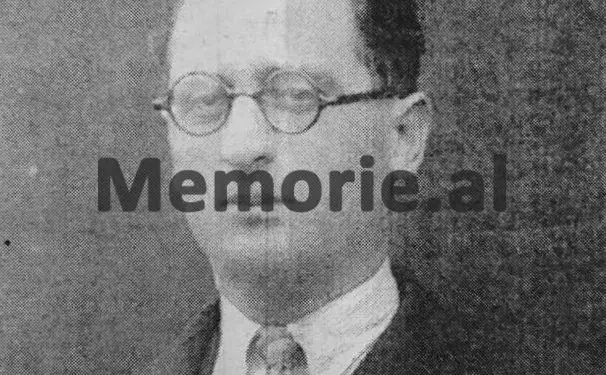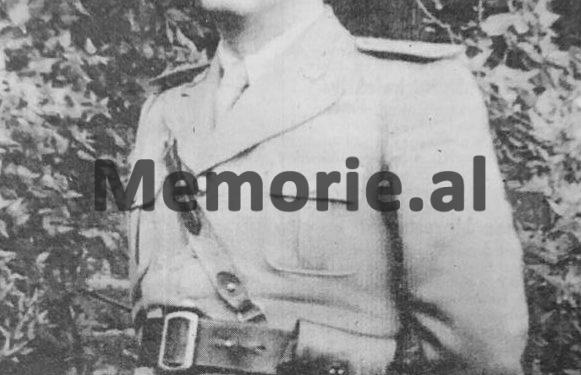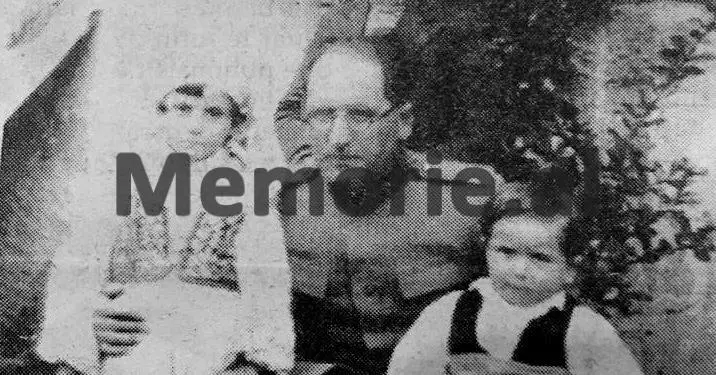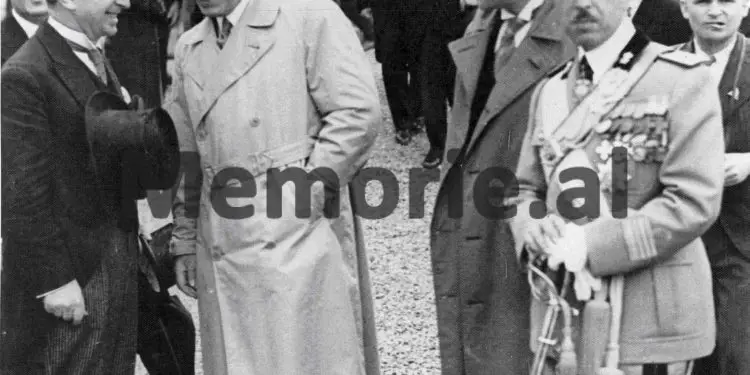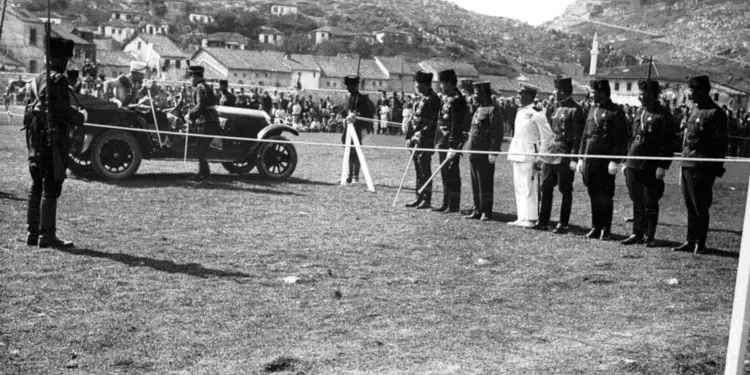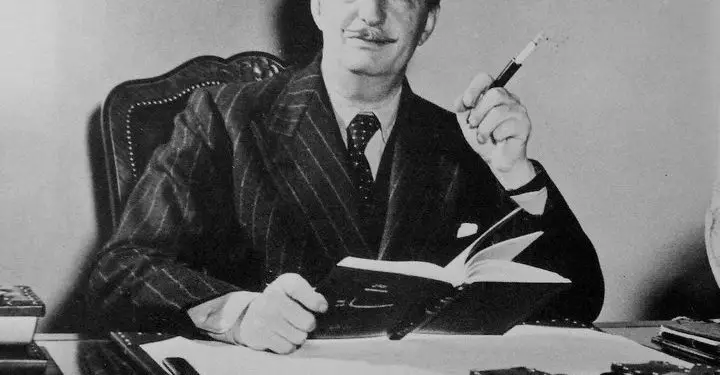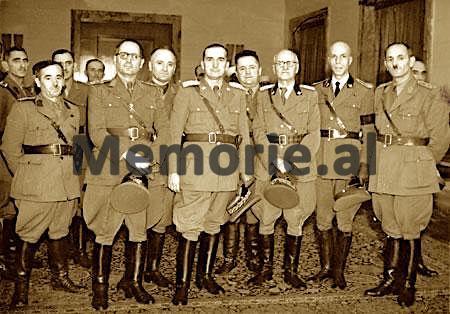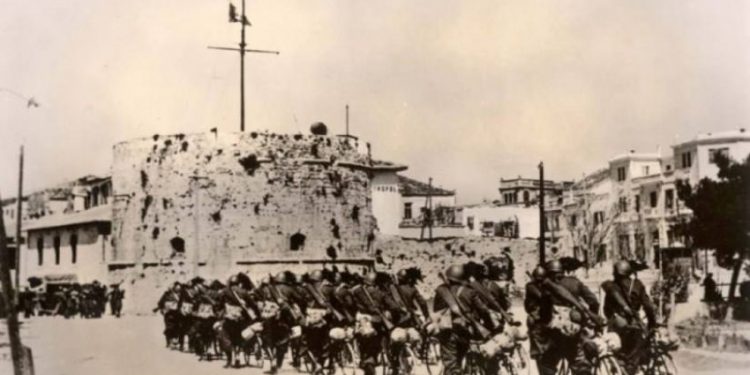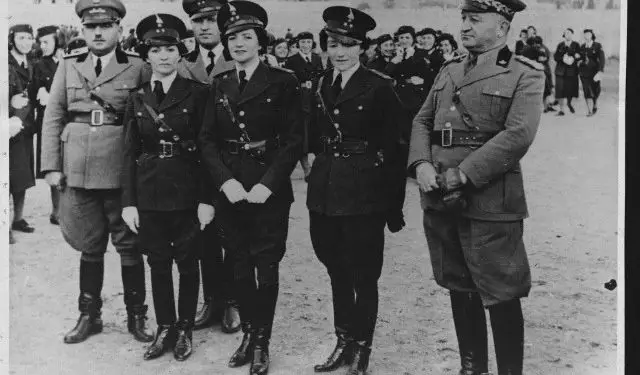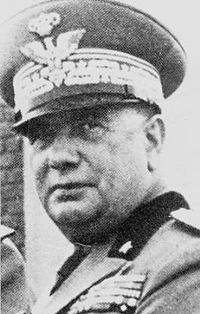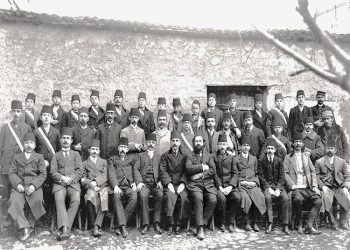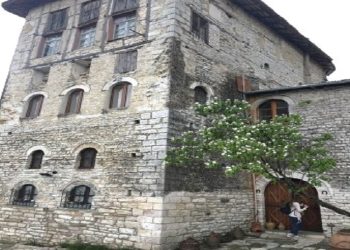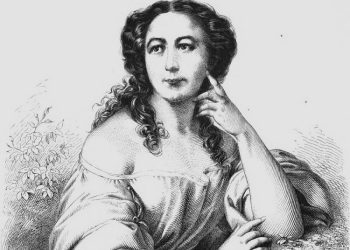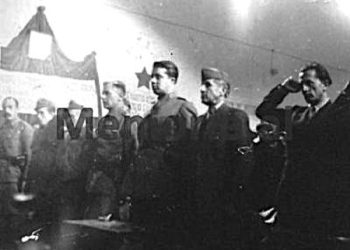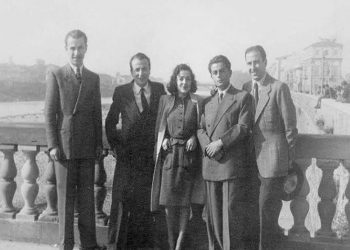Dashnor Kaloçi
The first part
Memorie.al publishes the unknown story of Colonel Sami Koka, originally from Delvina, a descendant of one of the richest feudal families as landowners in all of Albania, about which many foreign scholars have written, such as: Hughes, “Voyage a Janina ”, Remerand,“ Ali de Tepelena ”, Leake,“ Travels ”, Pouqueville,“ Historie de la regeneration de la Grece ”etc., and in the Turkish archives, there are still documents where it is known that at the end of the century In the past, members of this family, such as: Abdyl Bey Koka and Selim Bey Koka, were the main leaders of the uprisings in southern Albania, against Turkey. Sami’s education in Ioannina and later at the Military College of Vienna, which he completed with honors in 1916, was awarded the title of “Officer of the Austro-Hungarian Empire” and was twice decorated with the “Bronze Cross” of the Emperor. Franc Józef. Sami Koka’s excellent military career during the period of the Monarchy, after he graduated from the Higher Institute of War in Turin, (where he was awarded the titles of nobility “Cavalier” and “Commander of Savoy”), serving as Commander of Border Guard and later as Deputy Chief of Staff of the Albanian National Army, headed by the general of Croatian-Austrian origin, Gustav Myrdash. The unknown memoirs of Zog’s former colonel, which he secretly wrote while serving a 30-year sentence in Burrell Prison, in connection with the events of early April ’39, when Benito Mussolini’s fascist Italy the military aggression against Albania and King Zog, called him to the house of his uncle, (Prince Xhelal), where after initially thanking him, describing him as one of the most loyal officers of the Kingdom, charged him with a very important mission, on which the fate of Albania would depend…!
“I met King Zog in the living room downstairs at Prince Xhelal’s house. He was standing and dressed in civilian clothes, while I started to present myself to him militarily, he did not leave me and said to me: “Sami, sit down without hesitation, because I have a heavy and responsible task that you will perform and no one else. I chose you, because you are the faithful of the Kingdom “concluded the first words Zogu. “Now I know better than ever, that I have tried anyone who for our years, I have avenged, but that it was not my fault.” The king, as far as I understood, was talking about the bouncer and servile people he kept close to them and who left nothing untold for capable people. There I immediately remembered my aunt’s son, Faik Konica, when he once visited Albania, and after meeting with members of parliament, he said to Zog: “Albania has changed, but the thieves have plagued the government and Parliament.”
This is what former Colonel Sami Koka, one of the highest military men of the Zog Monarchy, wrote in his memoirs about the events of April 1939, when Benito Mussolini’s fascist Italy carried out military aggression against Albania and King Zog called him to the house of his uncle, (Prince Xhelal), where after initially thanking him, describing him as one of the most loyal officers of the Kingdom, he charged him with a very important mission, on which they would depend the fates of Albania.
Regarding these events that took place 82 years ago in April of ’39, with all its behind-the-scenes and unknown aspects, as well as the life story of the military career of Colonel Sami Koka, we will get acquainted in this article, which we have prepared based on the testimonies of his family members, as well as the memoirs that the former senior military officer Zogu had written since serving his 30-year sentence in Burrel Prison, which his nephew, Mr. Asim Koka, very kindly made them available for us to publish exclusively on Memorie.al
Sami Koka’s education in Ioannina and Vienna
Sami Koka was born in Delvinë in 1898 in the large family of the well-known tribe of the Koka tribe, which at that time was one of the most heard families in the south of Albania, which ranked first in the whole country as landowners, having in possession 18,000 ha., And after them came the Gjinolls of Prishtina and the Toptans of Tirana. Many foreign scholars have written about the economic power of the Koka tribe, such as: Huges, “Voyage a Janina”, Remerand, “Ali de Tepelena”, Leake, “Travels”. Pouqueville, “History of the Greek Regeneration” etc. In the Turkish archives are documents where at the end of the last century, members of this family, such as Abdyl Bey Koka and Selim Bey Koka, were the main leaders of the uprisings in southern Albania, against Turkey. In this family was born at the end of the last century and Samiu, who after attending classes in the Turkish primary school of Delvina, attended classes in the Greek gymnasium of Ioannina. In 1913, Samiu went to study at the Military College of Vienna, which he completed in 1916 and at the age of 18, he was named officer of the forces of this empire, where for the high discipline and professionalism he showed there. , was twice decorated with the “Bronze Cross” of Emperor Franz Joseph.
Conducts punitive operations in Malsina e Madhe and Mirdita
In 1920, Sami Koka returned to Albania, where together with his fellow officers who had studied in Western schools, they set to work organizing the newly created Albanian Army. During the years of the rule of Suljeman Bey Delvina (son of Sami’s uncle), he led several disarmament expeditions, both in the Prefecture of Dibra and the operation to suppress the ‘Great Highland Uprising’, led by local bayraktars and some members of the Clergy Catholics who were under the influence of certain Italian circles. In 1924, Samiu took part in the military coup against the government of that time headed by Shefqet Vërlaci, joining the side of Kasem Bey Radovicka and Kasem Bey Qafzezi, which brought to power the government led by Fan Noli. With the return of Ahmet Zogu to power at the end of December 1924, Samiu was appointed as the first adjutant of the Presidency, after his participation in the so-called “June Revolution” alongside the fanatical forces, was pardoned by Zogu, after the amnesty granted by him, considering that event as the ‘closed chapter’ for Sami and all the other military who were involved in that coup.
Sami’s conflicts with Zog and graduation from the Academy of Turin!
After some time in the service of the Adjutant of the Head of State, Prime Minister Ahmet Zogu, Samiu asked to leave that position, as he had some disagreements with Zogu, who, according to him, began to give ranks and offices to some bayraktars, who Sami called them “ignorant peasants”. After leaving the Adjutant Office, Samiu is appointed as a District – Commander in some regions of the country, such as Durres, Shkodra, Elbasan, Korca, etc. In 1928, he was sent for further military studies to the Higher Institute of War in Turin, where he excelled as an excellent student, where he was awarded the titles of “Cavalier” and “Commander of Savoy”. After graduating, he returned to Albania and was appointed to the Royal Headquarters of the Zog Monarchy, headed by his old friend, being awarded the rank of colonel. While working in the Royal Headquarters of the Monarchy, Samiu had the opportunity to work on drafting modern programs that would strengthen the Albanian army, according to the Swiss model, for which, he had contradictions with King Zog, as a result of intervention and the intrigues of the Italian advisers, who insisted on Zog, saying that: “in the Albanian Army no expenses should be made to strengthen it much, as it is under the protection of Italy”. As a result, Sami during this time was followed as a suspicious man and in the period of the “Uprising of Ethem Toto” (and his two brothers), he was regularly monitored, suspected of being his accomplice. But even from this problem, in those years, thanks to his skills in the military field, Samiu wrote several books of military character, such as “Turkish Empire, its east and west”, “War events in the first war on the Albanian front”, “Greek-Turkish war in 1920”, etc. Also, during this period of time, Samiu wrote many other articles in the periodical press of the Zog Monarchy, all of which had to do with the army and the defense of the country.
Negotiator in Durrës with General Guzzoni on April 7, ’39
In the first days of April 1939, Colonel Sami Koka was appointed by King Zog to, together with the Minister of National Economy, Rrok Gera, negotiate in Durrës with General Guzoni, the Commander-in-Chief of the Italian invading troops that would land in Albania. . After the failure of talks with General Guzon, on the morning of April 7, he was forced to travel to Greece, along with King Zog and the entire Royal Court that would accompany Zog after his forced departure from the country as a result of the occupation. Italian. Only ten days after leaving Albania, on April 17, when Samiu was still in Larissa (where he had a proposal from the Turkish military attaché in Athens to teach at the Ankara Military School), he decided to return to Albania, refusing the invitation of his Turkish friend. Upon his arrival in Albania, Colonel Sami Koka was arrested by Italian forces, but after many interventions up to Mussolini, to spare his life for what had happened to him on April 7 with General Guzzon, he was released from the Italians. The decisive interventions before the Duchess for his release were made by Shefqet Bey Verlaci (prime minister), General Aqif Përmeti and Fejzi Bey Alizoti, minister and then Governor General of Kosovo, who was the husband of Sami’s sister. After his repatriation to Albania, he remained at the disposal of the Italian command for some time without being appointed, but with all the rights of the military and the salary he had had before leaving the country. With the outbreak of the Italo-Greek War in 1940, seeing his anti-fascist spirit and sentiments, the Italian authorities settled and expelled him from Albania, sending him (half-interned) to the island of Sasari near an Albanian Calabrian regiment in southern Italy.
Prefect of Prizren, Dibra and Struga
During the time that Sami Koka was on the island of Sasari, Fejzi Bej Alizoti, who was the High Commissioner and Governor General of Kosovo, summoned him to Albania and appointed Colonel Sami Koka as the first-degree prefect for Prizren, Dibra. Greater Struga. During that period of time that he exercised that function in Kosovo and Macedonia, Samiu influenced and worked energetically on the issue of ethnic Albania, helping the spread and development of Albanian education in those provinces. Also, with his contribution during that time, the bust of Skanderbeg was erected in Debar and with his knowledge, it became possible to escape from the prison of the communist Emin Duraku and a short time later he opened the doors to all political prisoners, which at that time turned into a great manifestation for the whole city. After all these actions of Sami that contradicted the laws in force at that time on which the Albanian state operated under Italian occupation, the relevant authorities of the Italian administration, telegraphically informed Jakomon, (Viceroy of King Victor Emmanuel III), who called personally to Sami, demanding his resignation, which he was forced to grant immediately. After that, in 1943, Samiu returned from Kosovo to Tirana, but now without any function and with a small pension as a former soldier. After some time, when the Department of Gendarmerie was created in Tirana (as the first military nucleus of the state that would maintain order and peace in the country), Samiu was called again and appointed Commander of that Department, which was created in those days that Italy fascist was capitulating and its soldiers and officers were leaving Albania. After a short time in that position, Samiu left and was appointed to the same military duties he had in 1939, as Commander-in-Chief of the Border Guard and Finance, being at the same time Deputy Chief of the Albanian General Staff headed by General Aqif Përmeti and General Prenk Pervizi, as Commander-in-Chief of the Albanian National Army.
In ’44, he rejects the German Winter Operation Command!
In the winter of 1944, Colonel Sami Koka was appointed by the Germans as commander of the “Winter Operation”, a task which he did not accept, citing health reasons. In May 1944, when the German command in Tirana requested the formation of three Albanian divisions under arms, in order to send them to the war front, a meeting was held on this occasion, attended by some senior Albanian officers and Germans, as well as members of the Regency headed by Mehdi Frashëri, Father Anton Harapi and Lef Nosi. At that meeting, the Germans had brought with them to fill the minds of Albanians and Baron von Kushner from Austria, former colonel of the Albanian Army during the reign of Zog. That meeting was opened by General von Bessel, insisting on the mobilization of three divisions with Albanians and for this no one was reacting…! The only one who stood up was Colonel Sami Koka, who with a fluent German, reminded General Besel that Hitler had signed a document, where Albania was considered a neutral country and based on it, he could not be asked mobilization of the army with armed forces. After Sami, Von Kirschner also spoke, supporting him, while none of the other military dared to speak. This intervention later claimed the life of Von Kirschner, as upon his return to Austria, he was massacred by the German Gestapo. Meanwhile, a few days before the end of the war, in October 1944, Colonel Sami Koka was arrested by partisans while hiding in a house somewhere on the outskirts of Tirana to some of his friends. After that, accompanied by numerous partisan guards, he was first sent to Dajti Mountain, where by order of Colonel-General Enver Hoxha as Commander-in-Chief of the National Liberation Army, some old army barracks were adapted for prison and kept there in isolation. many of those arrested by the end of November of that year, accused of being “enemies of the people, who had stained their hands with blood.” At the beginning of December ’44, all those prisoners who were held in those barracks, went down to Tirana, “settling” them in the Old Prison, where Sami Koka was with them. After an investigation that lasted until the end of February 1945, in early March, Sami Koka appeared before the ‘Special Court’ (chaired by the President of the Court, Lieutenant General Koci Xoxe and the Prosecutor, Major General Bedri Spahiu, where he was sentenced to 30 years in political prison, all of which he spent in Burrel Prison.After serving his sentence, Sami Koka moved to Tirana where his wife and two children (Genci and Rita) lived, and died in 1972.
Memoirs of Colonel Sami Koka on April 7, ’39
During the period that former Colonel Sami Koka was serving a 30-year sentence in Burrell Prison, (where he attempted suicide twice) he was able to secretly write his memoirs and get them out of prison through family members who came to him. takim. Some of those memories, those related to the events of April ’39 when Benito Mussolini’s fascist Italy carried out military aggression invading Albania and King Zog called him to the house of his uncle (Prince Xhelal), for entrusting him with a top secret mission, telling him that: “from its realization, the fate of the nation would depend”, we are publishing them in this part of the article, without any change.
“At the end of February 1939, I was appointed Commander-in-Chief of the Border, leaving the post of Chief of Training in the National Defense Command. In mid-March 1939, I returned to Tirana. There I learned about the plot of Giro (Giovanni Giro) where some Albanian officers in Shkodra were implicated, through the Italian Consul, Melloni. I also heard the demands that the Italians had made to King Zog, as well as the talks that had taken place in Rome through his special envoy, General Zef Serreqi (Zog’s first adjutant). Both the people and I doubted that the King was making these conversations to justify other ‘concessions’ (concessions) he might make to Italy. In those days I learned that the talks in Rome had failed and the Italians decided to occupy Albania. However, rumors in Tirana were not lacking. Taking advantage of a short break, I went to the house of the Speaker of Parliament (Hiqmet Delvina, my brother-in-law) and there I found other MPs who were talking about the situation. It was there that I learned that Zog had decided to fight and not to give Italy a single inch of land without a fight./Memorie.al
Continues tomorrow




